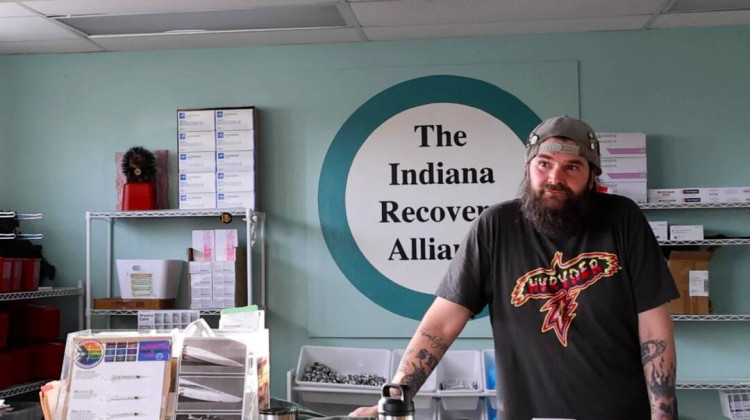
As artificial intelligence, or AI, enters into the health care field, some experts say there is hope and harm possible for its future.
PixabayAs artificial intelligence, or AI, enters into the health care field, some experts say there is hope and harm possible for its future.
Wura Jacobs is an assistant professor at Indiana University. She said artificial intelligence has the ability to help interpret and understand patient data more efficiently.
“I think they're also using artificial intelligence to not just understand people's medical history but to also pull different data together, to have a bigger, a better understanding of the context of their health profile,” Jacobs said.
Jacobs said this can also include ways to improve descriptions of patient information so multiple people can understand these details.
“So if you meet a patient and you want to summarize their reports so the next person who gets to work with them or get to see them has a good summary,” she said.
Jacobs said this can also include more efficient monitoring of measures of a patient’s health.
“Instead of having to go and physically scroll through a person's medical history, there are technologies in place now that can chart a person's blood pressure reading for like a month or like a year or something like that,” she said.
Jacobs said the establishment of these specific services and AI features can vary based on health care systems and locations.
She said an overriding concern when establishing any technology in health care is data privacy and trust.
“Because of that pressure that people feel to come on board with technology, there's a whole lot of diverse discussions going on about whether or not we trust or don't trust the system,” Jacobs said.
Jacobs said many people are hesitant to give out data, which could make it difficult to implement this in health care systems.
“So people are a little more protective and vulnerable even when it comes to health care costs, their life information that things that are very personal to them,” she said.
READ MORE: How can Hoosiers ensure their telehealth providers are legitimate?
Join the conversation and sign up for the Indiana Two-Way. Text "Indiana" to 73224. Your comments and questions in response to our weekly text help us find the answers you need on statewide issues.
Jacobs said hybrid solutions – including “health hubs” or intermediaries for care like CVS in rural areas – can help bridge divides in technology access while using artificial intelligence effectively. However, Jacobs said lack of access to all technology in health care – including telemedicine and artificial intelligence – is dependent on availability of these resources.
“So how does the system, the government, set up to be able to support health care by making that infrastructure available?” Jacobs said.
Jacobs said this can also lead to data that is not equitable. She said AI and other technology often have inherently biased models if the data being fed to them is not all-inclusive.
She said currently, data mostly exists from those who have adequate access to technology
“The data will continue to come from the majority who already have access, and we would all continue to leave behind the people who don't have access and don't have the technology and don't live in these areas that are easily mapped,” Jacobs said.
Other concerns for this technology include potential overreliance on AI in the future.
Jacobs said that concerns may arise if people begin to rely on AI alone to give health diagnoses or recommendations.
“That's a little bit more tricky because you really want to be sure that a human who knows what they're doing is the one suggesting the diagnosis so that you know about the treatment strategy,” she said.
Jacobs said AI has incredible potential but must be used and monitored with caution and attention to equity and security.
“We have to ease into how we incorporate technology into health care,” she said.
Jacobs said this also includes diversity in those who are designing technology – including those who are well versed in technology, health experts and others who may be able to help with implementation.
Violet is our daily news reporter. Contact her at vcomberwilen@wfyi.org or follow her on Twitter at @ComberWilen.
9(MDAyMzk1MzA4MDE2MjY3OTY1MjM5ZDJjYQ000))
 DONATE
DONATE






 Support WFYI. We can't do it without you.
Support WFYI. We can't do it without you.